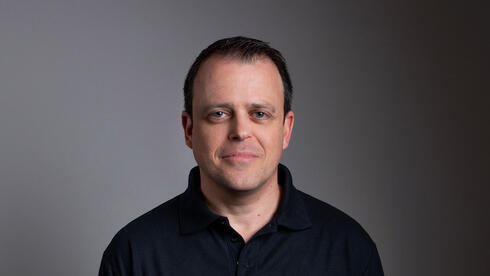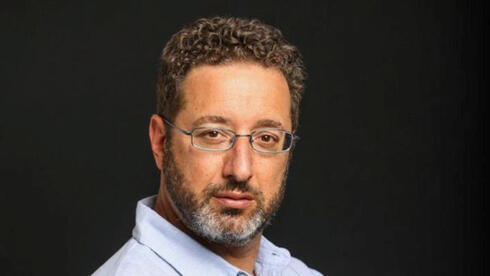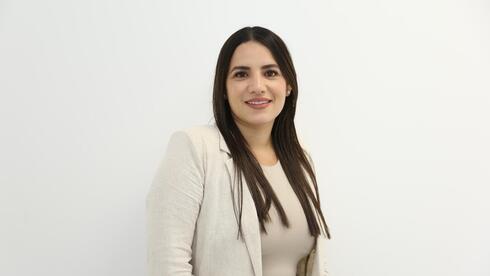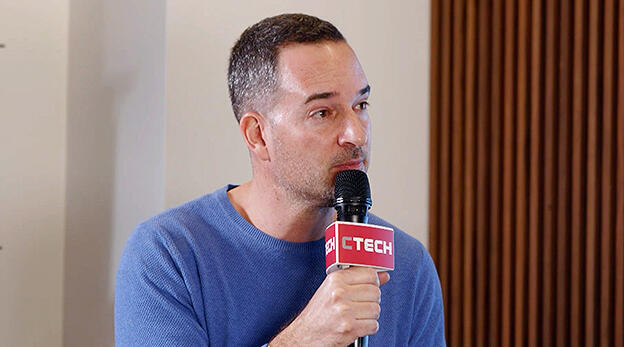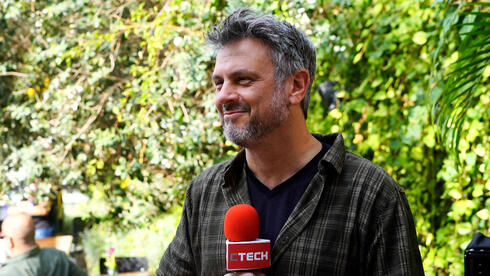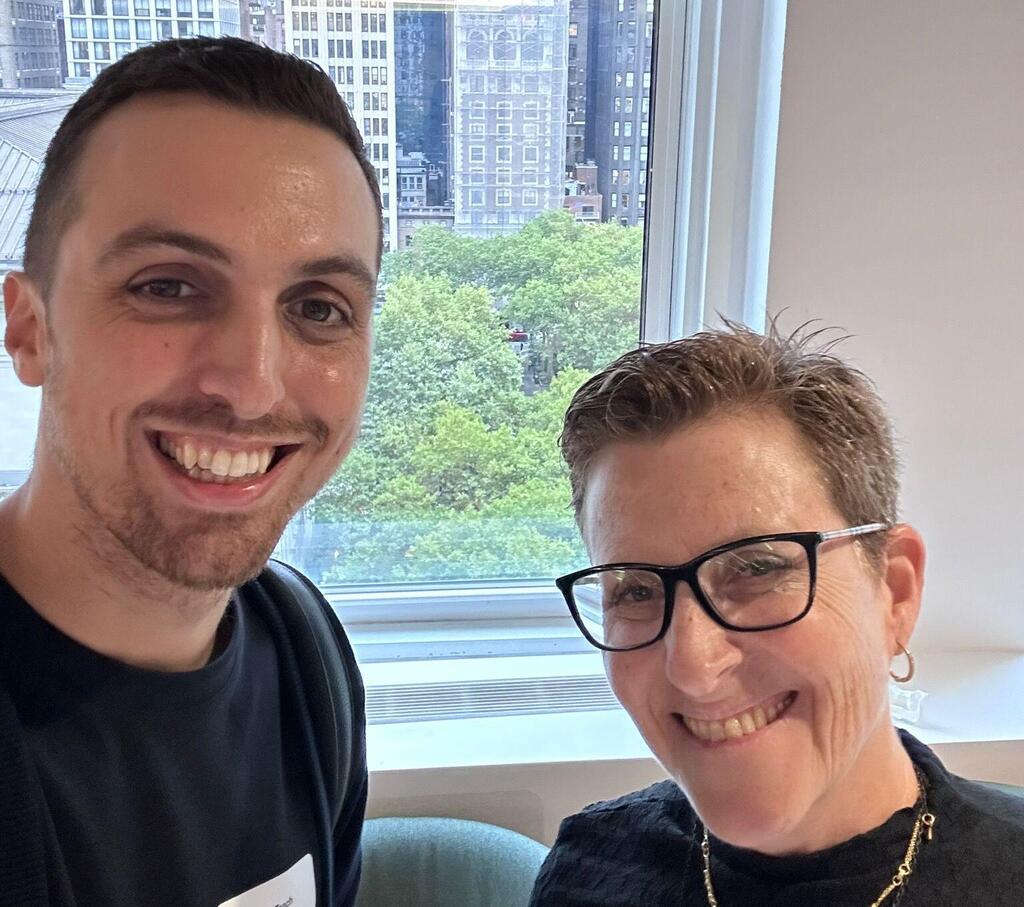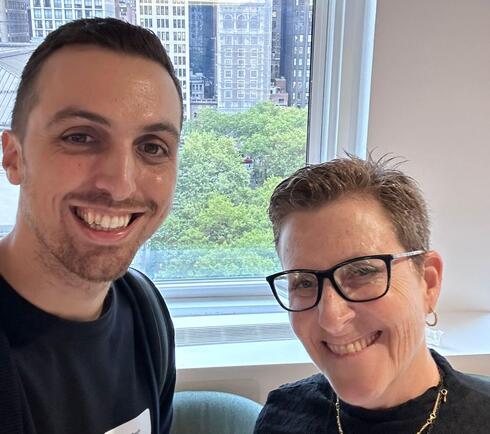
2025 VC SurveyInNegev pledges continued support for deeptech in 2025 amid Israeli resilience
2025 VC Survey
InNegev pledges continued support for deeptech in 2025 amid Israeli resilience
Amir Tzach and Karina Rubinstein joined CTech to discuss InNegev's role in the sector and how it can help pre-seed and early-stage companies.
“At InNegev, we remain committed to nurturing founders with deeptech visions. By focusing on early-stage ventures, we help build companies that not only succeed financially but also make a meaningful impact,” said VP of Investments and Business Development Amir Tzach and Karina Rubinstein, Venture Partner at InNegev. “We believe that investing in the earliest stages is where we, as investors, can make the most difference—for the entrepreneurs, the ecosystem, and the future of innovation.”
InNegev joined CTech for its 2025 VC Survey to share how the firm’s focus on deeptech will help direct its strategy over the year. The incubator helps companies at the pre-seed or early stage and represents a collaboration between many of Israel’s industrial, academic, and financial institutions.
You can read the entire interview below:
Fund ID
Name of fund/funds: InNegev
Total sum of the fund: $30m
Partners: Alpha Capital, Kibbutz Hatzerim, Yamin Family Office, Netafim, SodaStream, ICA, Dolav, Sami Shamoon, Israel Innovation Authority
Notable/select portfolio companies (active): Pickommerce, Copter, Fungit, Lamin Fiber
Notable exits: N/A
2024 is over. How can you summarize it in terms of the Israeli high-tech industry?
From my perspective as an investor and partner at InNegev, 2024 demonstrated the resilience of Israeli high-tech. Despite economic challenges and the backdrop of war, the entrepreneurial spirit remained unwavering. Companies in our incubator, particularly in the deeptech and sustainable technologies sectors, adapted swiftly by cutting costs, prioritizing resources, and continuing to innovate.
At InNegev, we focus on early-stage ventures and deep tech innovation—a space that saw steady growth as founders used creativity and resilience to thrive in adversity. It reaffirmed our belief in supporting ventures at the earliest stages, where the combination of vision, strategy, and support makes the biggest difference.
Looking ahead to 2025 - What challenges and opportunities await the Israeli high-tech sector in the coming year, and how are you, as investors, preparing for them?
2025 presents challenges in navigating global markets, raising capital, and maintaining growth. Yet for early-stage deeptech startups, these challenges are opportunities. Deeptech ventures inherently require long-term thinking, patient capital, and robust ecosystems—precisely the areas InNegev prioritizes.
We see opportunities to:
- Foster Deep Tech Solutions: Invest in sectors like robotics, industrial AI, sustainable energy, and advanced materials where innovation can reshape industries.
- Empower Founders: Provide strategic mentorship, access to infrastructure, and partnerships with industry leaders.
- Strengthen Regional Collaboration: Partnering with universities, research institutes, and strategic investors to bridge gaps between ideation and commercialization.
Our mission at InNegev remains clear: to help early-stage founders navigate their journey from concept to scalable business, with a focus on technologies that have a tangible, global impact.
How will new American leadership affect the global high-tech industry or economy? And where does this place Israel and its entrepreneurs?
As we look at the anticipated new U.S. administration, I believe it will positively impact the global high-tech sector. Policies aimed at fostering economic growth and stability will indirectly benefit Israel. For early-stage ventures, a stable global environment means better access to funding, strategic partnerships, and market opportunities.
InNegev sees this as an opportunity for our startups to strengthen ties with U.S.-based companies and investors, positioning themselves for global scale.
What are the most important things the Israeli government should do today to accelerate the high-tech engine in the coming year?
To further strengthen Israel’s position as a global innovation hub, the government must take a founder-first approach to supporting early-stage deep tech ventures. Key actions include:
- Deep R&D Infrastructure: Establishing more accessible R&D facilities tailored to the needs of early-stage ventures in fields like AI, robotics, and materials science.
- Academic-Startup Ecosystem: Incentivizing applied research and fostering spin-offs from universities, particularly in partnership with incubators like ours.
- Strategic Partnerships and Investments: Encouraging collaboration between global players and Israeli startups, while also attracting new early-stage investors through incentives.
- Position the Israeli ecosystem as a leader in deeptech innovation, incentivizing and encouraging new ideas and concepts
The government has made great strides with programs like what the Israel Innovation Authority promotes, but a renewed focus on early-stage deeptech and first-time founders will ensure Israel maintains its competitive edge.
Are there new sectors you see as relevant? Are there any fields you anticipate will weaken significantly in the coming year?
At InNegev, our vision revolves around investing in deeptech ventures. The sectors we see as particularly relevant include:
- Deeptech: Robotics, materials science, and industrial AI are areas with significant growth potential.
- AI to drive future automation and processes: Real-world applications of AI in manufacturing and logistics are creating new opportunities for early-stage ventures.
- Sustainable Technologies: Solutions in areas like water and next-gen energy technologies, as well as sustainable materials, align with our partners’ expertise and climate-focused innovations align with our partners’ expertise and global demand.
Defense technology could also see growth, but our primary focus remains on solutions that transcend specific markets to have broad industrial and societal impact.
Is Israel missing out on the AI revolution in the global arms race? If not, what should the local industry focus on to join the global race?
Israel is not missing out on the global AI race, but its success depends on empowering early-stage ventures. By translating AI (as part of future robotics) research into practical applications, particularly in industrial automation and logistics, Israeli startups can remain competitive.
At InNegev, we work closely with academic and industry partners to translate AI research into scalable startups, ensuring that our portfolio companies remain at the forefront of this revolution.
Could the global IPO drought end in the coming year?
While the IPO market globally was muted in 2024, cautious optimism exists for 2025. However, for early-stage deep tech ventures, the focus should remain on building resilient, scalable companies rather than short-term liquidity events. InNegev prioritizes preparing startups for long-term success through partnerships, strategic investments, and well-timed exits. that said, the revival of the local IPO scene can be most relevant as a future funding tool for those early-stage startups and Innegev plans to further explore such opportunities for its portfolio ventures.
From an investor's perspective: will the coming year be better for early-stage startups or more mature companies?
Early-stage startups have a unique edge in 2025 due to their agility and ability to adapt quickly. At InNegev, we focus on nurturing early-stage ventures, connecting them to strategic resources, and providing the runway they need to succeed. In addition, we also maintain our portfolio on its way to growth and therefore invest our resources beyond the money, to enable them to develop and turn into more mature companies.
Did you raise fund money in 2024 for an existing fund or a new one? What are your expectations regarding this matter for 2025?
2024 fundraising was successful, with plans to continue into 2025 to fuel early-stage ventures in deeptech.
How many investments did you make in 2024, and how does it compare to previous years?
This year, we have made eight investments: five new investments and three follow-on investments.
Provide an example of an intriguing investment you made in 2024. What sets this company apart, or what is distinctive about its sector?
Pickommerce: Co-founded with Ben-Gurion University and the Technion, it exemplifies deep tech innovation, focusing on logistics storage solutions. By shaping its journey from inception, we’ve positioned Pickommerce as to be a market leader.
Two notable companies that you think will thrive in 2025. These can be from your portfolio or not.
Company Name: Pickommerce
Sector: Logistics storage solutions
Investment amount: $3.4m
Founding Year: 2021
Reason: Positioned to lead in an industry that’s evolving rapidly, with scalable solutions aligned to market needs.
Company Name: Refine Robotics
Sector: Robotics and Artificial Intelligence
Investment Amount: Confidential
Founding Year: 2024
Reason: Refine Robotics addresses labor shortages in manufacturing by enabling robots to quickly learn soft manipulation tasks, like electronics assembly and screwing, without requiring programming skills.



